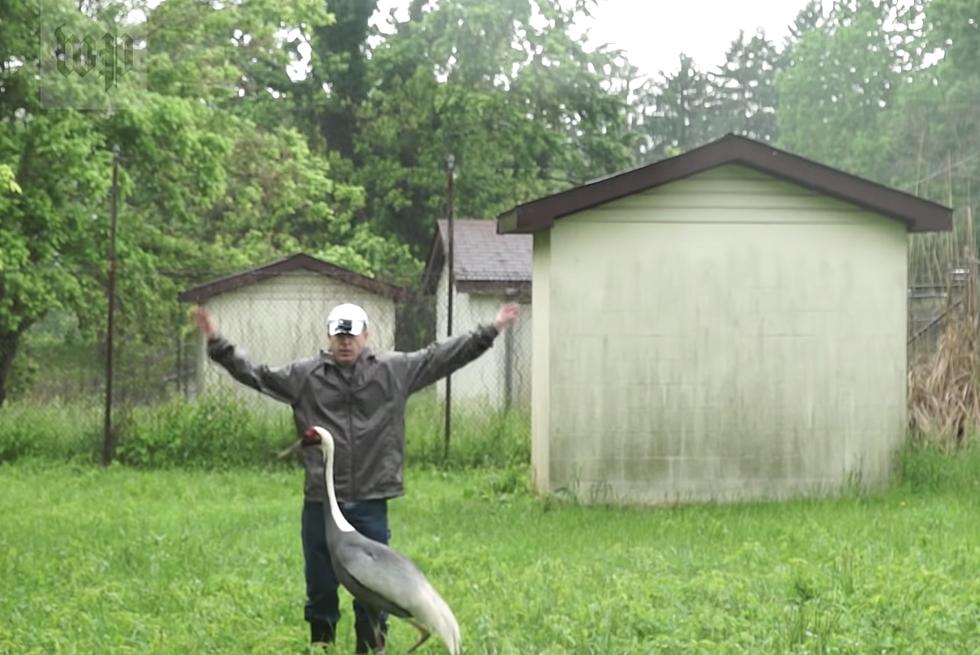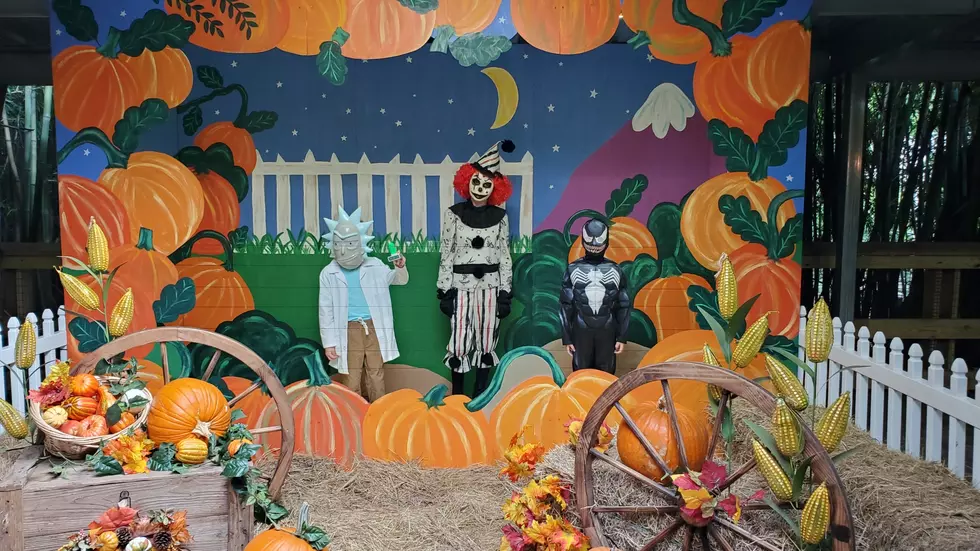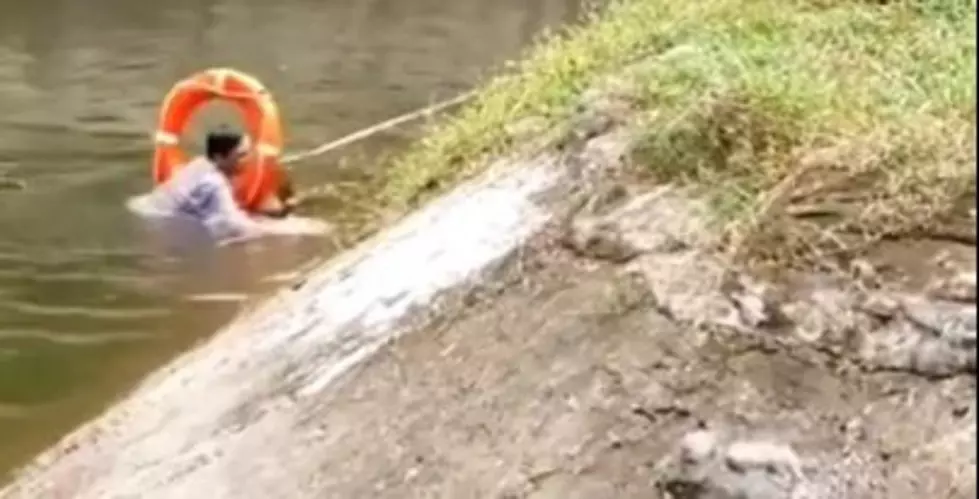
Zookeeper ‘Married’ to Crane That Fell for Him is Currently the Best Story on the Internet Right Now
It's the story that gives finding love in a hopeless place a whole new meaning.
It's actually a story that we've heard before, as it surfaces every few years, but it never gets old as the story of the crane who fell in love with her zookeeper is going viral once again. The endangered white-naped crane goes by the name of Walnut, and the story of her relationship with zookeeper Chris Crowe is a perplexing one.
Walnut was born in the 1980s through a recovery breeding program due to her species being endangered. She was hand-raised by human volunteers in the program at a time when it was not fully understood that their imprint on humans as chicks would affect the ability to "retain their identity as cranes."
Because of this, it is believed that Walnut doesn't see other cranes as members of her own species. There are even rumors that she has killed two previous suitors and ignores the eligible cranes in her enclosure—opting to pay special attention to a human zookeeper by the name of Chris Crowe instead.
Crowe (no pun intended) and Walnut both arrived at the Smithsonian Conservation Biology Institute around the same time in 2004. Walnut is the one who made the first move, initiating her mating dance.
Chris realized if he reciprocated the mating dance, it might be possible to artificially inseminate Walnut with her participation and consent.
His theory was right—and the good news is that the process usually involves having to restrain the bird. The even better news is that this development has allowed Chris and Walnut to have over five children. Because of the unorthodox pairing, other crane couples have raised the crane chicks.
Chris has accepted his "marriage" to Walnut and knows that he won't be able to retire as long as she's alive. That's some serious commitment to the assignment considering that white-naped cranes live to be 60 (Walnut is in her 30s and Chris is in his 40s), "and mate for life."
Reactions to the viral tweet ranged from people who found the pairing odd to others who applauded Chris for his commitment to the science and conservation efforts.
While this may be weird to some people, it is definitely a new definition of job security for this zookeeper, and at the end of the day, a species is a little less endangered.
That's a good thing, right?
LOOK: Here are the pets banned in each state
More From News Talk 96.5 KPEL





![Crane Crashes Down on UL Fraternity House [PHOTOS]](http://townsquare.media/site/34/files/2022/05/attachment-Screen-Shot-2022-05-04-at-8.53.54-AM.jpg?w=980&q=75)



